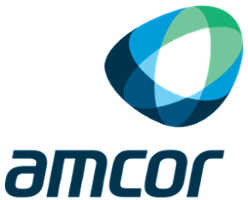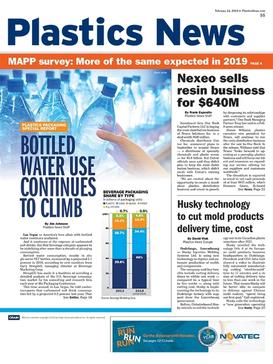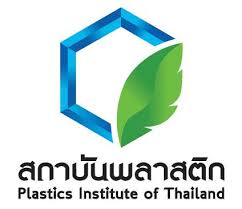Related Research Articles

The chemical industry comprises the companies that produce industrial chemicals. Central to the modern world economy, it converts raw materials into more than 70,000 different products. The plastics industry contains some overlap, as some chemical companies produce plastics as well as chemicals.

Amcor plc is a global packaging company. It develops and produces flexible packaging, rigid containers, specialty cartons, closures and services for food, beverage, pharmaceutical, medical-device, home and personal-care, and other products.

Plastic recycling is the processing of plastic waste into other products. Recycling can reduce dependence on landfill, conserve resources and protect the environment from plastic pollution and greenhouse gas emissions. Recycling rates lag those of other recoverable materials, such as aluminium, glass and paper. Through 2015, the world produced some 6.3 billion tonnes of plastic waste, only 9% of which has been recycled, and only ~1% has been recycled more than once. Additionally, 12% was incinerated and the remaining 79% sent to landfill or to the environment including the ocean.

Berry Global, Inc, formerly known as Berry Plastics Group, Inc, is a Fortune 500 global manufacturer and marketer of plastic packaging products. Headquartered in Evansville, Indiana, it has over 265+ facilities across the globe and more than 46,000+ employees With $14+ billion in revenues in fiscal year 2022, the company is one of the largest Indiana headquartered company in Fortune Magazine’s ranking. The company changed its name from Berry Plastics to Berry Global in 2017.

The term plasticulture refers to the practice of using plastic materials in agricultural applications. The plastic materials themselves are often and broadly referred to as "ag plastics". Plasticulture ag plastics include soil fumigation film, irrigation drip tape/tubing, plastic plant packaging cord, nursery pots and bales, but the term is most often used to describe all kinds of plastic plant/soil coverings. Such coverings range from plastic mulch film, row coverings, high and low tunnels (polytunnels), to plastic greenhouses.
The plastics industry manufactures polymer materials—commonly called plastics—and offers services in plastics important to a range of industries, including packaging, building and construction, electronics, aerospace, manufacturing and transportation.

Plastics News is a weekly, 46,000-circulation trade newspaper delivering global news to a primarily North American market. Founded by Crain Communications Inc. in Akron, Ohio, in 1989, it covers the business of the global plastics industry. The publication relocated to Crain's corporate headquarters in Detroit in 2013.

Plastics are a wide range of synthetic or semi-synthetic materials that use polymers as a main ingredient. Their plasticity makes it possible for plastics to be moulded, extruded or pressed into solid objects of various shapes. This adaptability, plus a wide range of other properties, such as being lightweight, durable, flexible, and inexpensive to produce, has led to its widespread use. Plastics typically are made through human industrial systems. Most modern plastics are derived from fossil fuel-based chemicals like natural gas or petroleum; however, recent industrial methods use variants made from renewable materials, such as corn or cotton derivatives.

Nilkamal Limited is a plastic products manufacturer based in Mumbai, India. It is the world's largest manufacturer of moulded furniture and Asia's largest processor of plastic moulded products. Their product range consists mainly of custom plastic mouldings, plastic furniture, crates and containers. The company also has a chain of retail stores under the @home brand.

Plastic pollution is the accumulation of plastic objects and particles in the Earth's environment that adversely affects humans, wildlife and their habitat. Plastics that act as pollutants are categorized by size into micro-, meso-, or macro debris. Plastics are inexpensive and durable, making them very adaptable for different uses; as a result, manufacturers choose to use plastic over other materials. However, the chemical structure of most plastics renders them resistant to many natural processes of degradation and as a result they are slow to degrade. Together, these two factors allow large volumes of plastic to enter the environment as mismanaged waste and for it to persist in the ecosystem.

PRAN-RFL Group is a Bangladeshi conglomerate, founded in 1981 by Amjad Khan Chowdhury. The company is known for its diversified business portfolio, including food and beverage, plastic products, and agricultural machinery. It is one of the largest conglomerates in Bangladesh, with a presence in more than 145 countries. Pran-RFL Group is headquartered in Dhaka, Bangladesh, and employs over 10,000 people worldwide. The group operates under several subsidiaries, including Pran Foods, RFL Plastics, Pran-RFL Healthcare, and many others.

Viscofan is a Spanish manufacturer of casings for meat products, with commercial presence in over 100 countries around the world.
Plastic roads are roads that are made partially or entirely from plastic or plastic composites with other materials. Plastic roads are different from standard roads in the respect that standard roads are made from asphalt concrete, which consists of a mineral aggregate and asphalt, while plastic roads are made of plastic. Most plastic roads make use of plastic waste as the aggregate within the asphalt. It is currently unknown how these aggregates will perform in the mid- to long-term, or what effect their degradation might have on surrounding ecosystems.

GreenMantra Technologies is a clean technology company that produces value-added synthetic waxes and specialty polymers from post-consumer and post-industrial recycled plastics. These products are used in various applications including roofing and paving, plastics processing, and plastics composites. The company is focused on "up-cycling" recycled plastics into specialty materials, creating a more circular economy for plastics where they are beneficially reused rather than landfilled.
China's waste import ban, instated at the end of 2017, prevented foreign inflows of waste products. Starting in early 2018, the government of China, under Operation National Sword, banned the import of several types of waste, including plastics. The ban has greatly affected recycling industries worldwide, as China had been the world's largest importer of waste plastics and processed hard-to-recycle plastics for other countries, especially in the West.
The trade policy of Switzerland refers to Switzerland's approach to importing and exporting with other countries.

Multi-layered packaging are multilayer or composite materials using innovative technologies aimed to give barrier properties, strength and storage stability to food items, new materials as well as hazardous materials.

Plastics Institute of Thailand (PITH) is a not-for-profit entity under the Foundation for Industrial Development (FID), which itself falls under the Ministry of Industry (Thailand).

Sintex group, formerly known as The Bharat Vijay Mills Ltd and Sintex Industries Ltd, is the world's largest producer of plastic water tanks and Asia's largest manufacturer of corduroy fabrics. Sintex operates in Europe, America, Africa, and Asia, especially in France, Germany, and the US. It primarily works with building materials, textiles, prefabricated structures, custom molding products, monolithic construction and water storage tanks.
References
- ↑ "Plastics consumption far below global average'". The Hindu Business Line.
- ↑ Livenews, Chennai. "Plastindia invites award entries".